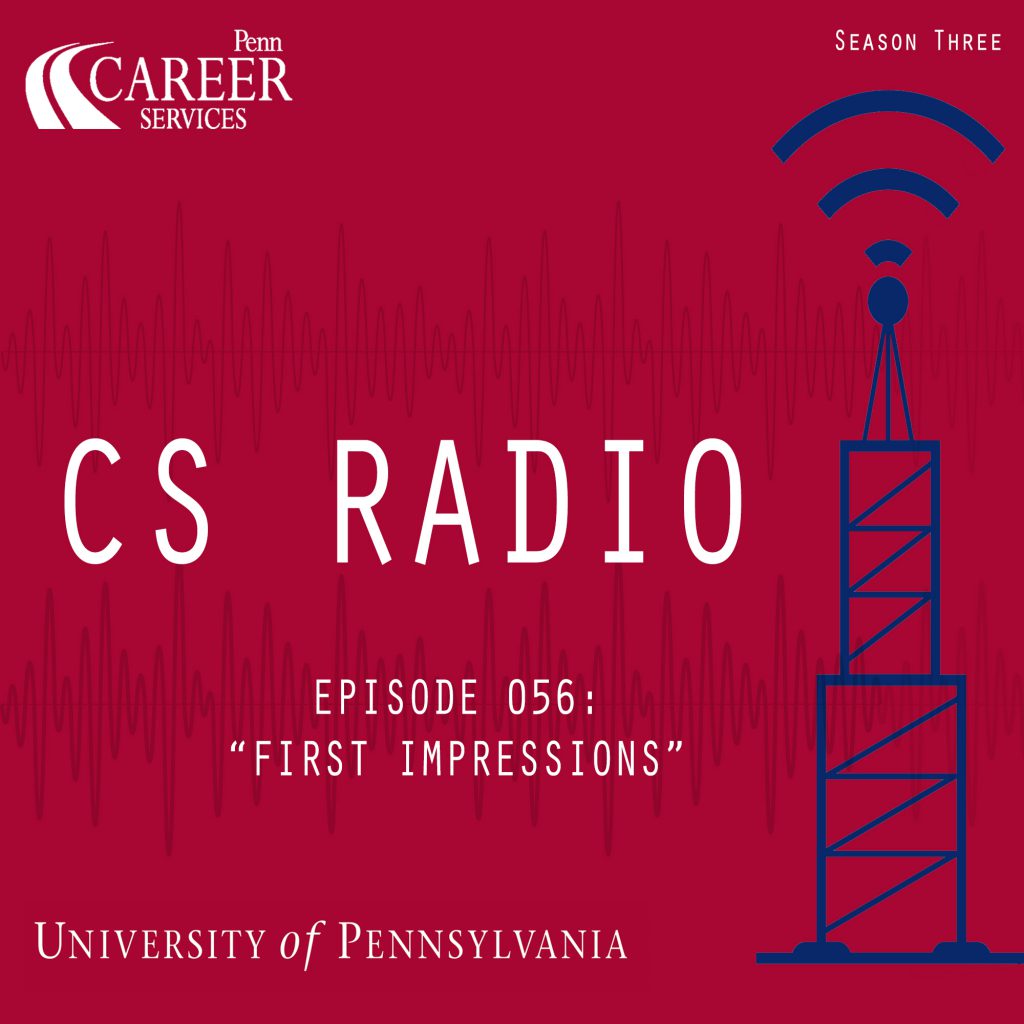By Claire Klieger
It’s February and love (Eagles, in particular) is in the air so I wanted to revisit and update this blog post from several years ago….
So you meet a great employer at a career fair (perhaps the spring career fair this past Friday) and it’s love at first handshake—sparks fly, resumes and business cards are exchanged and you feel like you’ve really made a connection. But just like coming down from the high of a great first date you ask yourself, now what? How do I follow up? Do I wait for him or her to call? Do I email? Who initiates the next move? Similar to a budding romance, it’s about finding that balance between demonstrating interest and not coming off as desperate. Here are some tips and things to remember when following up with employers after a career fair:
Email a thank you note
Yes, even though the representative at the Career Fair may have spoken with dozens of students over the course of the day, this is one way to make yourself stand out. We hear all the time from employers that they really appreciate this kind of small gesture. Despite how it may seem, many applicants do not take the time to do this and so it does make a difference. Increasingly, employers rely on sophisticated tools to help them track contact with candidates and so not only will this gesture be welcomed by the contact, it may very well be officially noted as part of your online file with that employer.
Err on the side of being more formal
After a first date, you probably aren’t ready for someone to start addressing you as “Babe.” Similarly, some employers won’t feel that you know them well enough to refer to them by their first name. Unless during your initial conversation the recruiter specifically asked you to call him or her by their first name or introduced themselves using only their first name, you should still use a formal greeting (“Dear Mr., Ms., Dr., etc.”). Your email message should also avoid overly casual language, slang, acronyms (TTYL!), or emoticons.
What to say…
An email to an employer should be brief but detailed. Reiterate your interest in the organization and remind the recruiter of details you discussed at the fair. “Thank you for taking the time to speak with me at the Penn Career Fair on Friday. As I mentioned when we met, I’m really excited about this internship because as a health and societies major, it blends my interest in healthcare and communications. In particular, I enjoyed hearing about the kinds of projects that past interns have had a chance to work on and believe my leadership role as publicity chair for my sorority will enable me to…(reference what you will be doing in the position). I’m excited to submit my application online.” It could also just be thanking for them sharing some particular piece of advice or resource that resonated with you. Often, the best thank you emails are simply ones that show appreciation without an expectation of any follow-up or responses to questions.
Show that you really listened
You know how impressed you are if someone you’re interested in remembers something you mentioned (like a book you read that you enjoyed), unless, of course you have a stalker and then it’s just creepy. The same holds true for recruiters. If there was advice or information that a recruiter gave you at the fair (a professional association or recruiting website to check out), thank them for making that suggestion and show that you followed up on their advice. “Thanks so much for recommending ______. I spent some time looking at it this weekend and it’s a wonderful resource which I think will really help me….”
How long is too long?
Remember that recruiters are really busy and don’t have much time so they want to be able to get through your message quickly. Ideally, it should be no more than a few sentences. I think a good rule of thumb is whether or not the entire text of your message can be seen when the message is opened on a regular computer screen. If the message requires scrolling to finish reading, it’s probably too long.
Not getting a response doesn’t necessarily mean they “just aren’t that into you”
While some recruiters will respond to individual emails not everyone is good about replying. Don’t assume that if you don’t get a response that the recruiter isn’t interested in you as a candidate. They may just be too busy. That said, if it’s been more than a week since you initially emailed AND your message was something that required a response (like an answer to a question), it’s fine to follow-up with a second (even shorter) email referencing your initial email and asking they have had a chance to consider your question. After that second follow-up if you still don’t receive a response, it’s time to back off (remember, being labeled a stalker on the job market is no better than in the dating world). The “ball” is in their court and they will get back to you if (and sometimes only if) they are interested. Remember that all employers are on different timelines so it may take some time to get a response.


